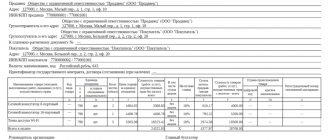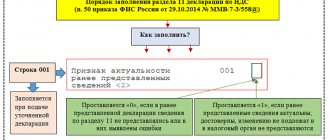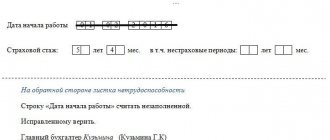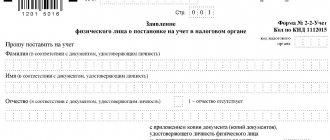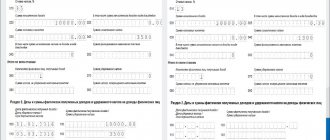If he does not do this, the buyer will lose the right to deduct VAT.
An invoice is a document that serves as the basis for accepting the VAT amount for deduction. According to paragraph 3 of Article 169 of the Tax Code of the Russian Federation, an invoice is issued:
- taxpayers for transactions carried out in relation to the object of taxation (Article 146 of the Tax Code of the Russian Federation);
- persons exempt from VAT under Articles 145 and 145.1 of the Tax Code of the Russian Federation (clause 5 of Article 168 of the Tax Code of the Russian Federation);
- tax agents for purchases on the territory of Russia from foreign suppliers (subclauses 1 and 2 of Article 161 of the Tax Code of the Russian Federation) or when using state property (clause 3 of Article 161 of the Tax Code of the Russian Federation);
- VAT payers on received advances and when changing the price or volume of shipments already made (clause 3 of Article 168 of the Tax Code of the Russian Federation);
- non-payers of VAT when selling on their own behalf or when re-issuing invoices (subclauses 1 and 3.1 of Article 169 of the Tax Code of the Russian Federation).
The established forms of the invoice form and the procedure for filling it out are contained in Decree of the Government of the Russian Federation dated December 26, 2011 No. 1137 (hereinafter referred to as the Rules).
The information required to fill out an invoice consists of a certain set of indicators (subclauses 5, 5.1, 5.2 of Article 169 of the Tax Code of the Russian Federation):
- details (number and date);
- information about the seller and buyer;
- the currency in which the numerical data of the document is reflected;
- unambiguous name of the object of sale;
- the total sale price without taxes and with taxes, the amount of taxes, the VAT rate, if there is a tax;
- signatures of persons entrusted with this right.
Significant errors in the invoice
Errors in invoices are considered significant if they can cause a refusal to deduct VAT. These include errors that do not allow the tax authorities to identify (clause 2 of Article 169 of the Tax Code of the Russian Federation):
1) seller or buyer.
These are errors in the name of the seller or buyer, their address and TIN, due to which the inspection cannot identify the seller or buyer.
For example, in line 6 of the invoice they indicated not the name of the buyer from the constituent documents, but their full name. his employee (Letter of the Federal Tax Service of Russia dated 01/09/2017 No. SD-4-3 / [email protected] ).
You can check the details of the seller (buyer) on the website of the Federal Tax Service of Russia
2) the name of the goods shipped (work, services, property rights).
For example, instead of “rye flour” it is indicated “wheat flour” (Letter of the Ministry of Finance of Russia dated 08/14/2015 N 03-03-06/1/47252).
If this column contains incomplete information, but sufficient to determine the product (work, service, property right), then this does not affect the deduction (Letter of the Ministry of Finance of Russia dated November 17, 2016 N 03-07-09/67406);
3) the cost of goods (work, services, property rights) and the amount of VAT.
For example, these could be:
— arithmetic errors in the cost or amount of tax (Letter of the Ministry of Finance of Russia dated 04/19/2017 N 03-07-09/23491);
— lack of data on the cost or amount of tax (Letter of the Ministry of Finance of Russia dated May 30, 2013 N 03-07-09/19826);
— absence or incorrect indication of the name and code of the currency (Letter of the Ministry of Finance of Russia dated March 11, 2012 N 03-07-08/68);
— absence or incorrect indication of the unit of measurement, quantity (volume) and price (tariff) per unit of measurement (Letter of the Ministry of Finance of Russia dated October 15, 2013 N 03-07-09/43003);
4) the correct tax rate.
For example, instead of a 10% rate, a 20% rate is indicated.
If errors do not interfere with identifying the seller and buyer, the name and cost of goods (work, services), property rights, the rate and amount of tax, then such errors are insignificant and because of them should not be denied VAT deduction (clause 2 of Article 169 of the Tax Code RF).
This question can only be answered in writing.
This is the opinion of the Federal Tax Service: the republics of Ingushetia, Karelia, Komi, Chechnya, Altai and Krasnoyarsk territories, Belgorod, Kaluga, Leningrad, Lipetsk and Oryol regions, Moscow and St. Petersburg.
In 12 out of 41 departments they were unable to communicate their position. But at the same time, in five regions, tax officials told us that they are not aware of cases of denials of deductions because of the address - these are St. Petersburg, Ingushetia, Karelia, Chechnya and the Altai Territory. In other regions, they agree to answer about deductions only upon written request.
Error in address on invoice
Address errors on the invoice do not have tax consequences for the seller. But they can lead to the refusal of the buyer to deduct VAT. This is due to the fact that this detail is mandatory and helps the tax authority identify the seller or buyer (clause 2, clause 2, clause 5, clause 2, clause 5.1, clause 3, clause 5.2, Article 169 of the Tax Code of the Russian Federation).
However, the invoice contains other data by which the inspection identifies the seller and buyer. These include, in particular, their names and TIN. Therefore, an error in the address does not always lead to a denial of deduction. This was confirmed by the Ministry of Finance of Russia in Letter dated 04/02/2015 N 03-07-09/18318.
If the invoice contains an incomplete address compared to the address in the Unified State Register of Legal Entities (USRIP), this will also not lead to a refusal to deduct if it is possible to identify the buyer based on other invoice details (Letter of the Ministry of Finance of Russia dated August 30, 2018 N 03- 07-14/61854).
If the address matches the address from the Unified State Register of Legal Entities (USRIP), but there are technical errors in its spelling, the buyer can deduct VAT. For example, acceptable (Letters of the Ministry of Finance of Russia dated 04/02/2019 N 03-07-09/22679, dated 04/25/2018 N 03-07-14/27843, dated 04/02/2018 N 03-07-14/21045, dated 17.01. 2018 N 03-07-09/1846, dated 11/20/2017 N 03-07-14/76455):
• abbreviations of words;
• replacing capital letters with lowercase ones or vice versa;
• changing the places of words in the street name;
• additional indication of the country, if this is not in the Unified State Register of Individual Entrepreneurs or the Unified State Register of Legal Entities, etc.
We recommend checking the address with data from the Unified State Register of Legal Entities (USRIP). Data from the Unified State Register of Legal Entities is available on the website of the Federal Tax Service of Russia
If significant errors are found in the address on the invoice, we recommend that the buyer contact the seller with a request to correct the invoice and cancel the registered invoice in the purchase book.
What to do if the factual and legal do not coincide?
No matter how complex the structure of the enterprise, no matter how many addresses the organization has, when issuing an invoice, you should be guided by the requirement to enter in lines 2a and 6a legal addresses that coincide with those indicated in the extract from the Unified State Register of Legal Entities/Unified State Register of Individual Entrepreneurs.
At the same time, the legislation allows the introduction of additional lines and details into the accepted forms of documents (Resolution of the State Statistics Committee of Russia dated March 24, 1999 No. 20).
Changes made to the forms of primary documents must be approved by order of the enterprise.
Incorrect TIN on the invoice
Incorrect TIN indication on the invoice does not entail tax consequences for the seller. But the buyer may be denied a deduction, since this is a mandatory indicator and the tax authority uses it to identify the seller and the buyer (clause 2, clause 2, clause 5, clause 2, clause 5.1, clause 3, clause 5.2, Article 169 of the Tax Code of the Russian Federation ).
However, in a specific situation, the court may side with the buyer.
For example, the AS of the West Siberian District considered that an error in the TIN does not prevent the determination of the VAT amount and the identification of the counterparty to the transaction (see Resolution of the AS of the West Siberian District dated July 18, 2017 N F04-2386/2017).
However, we recommend that you carefully check the completion of such information on the invoice, and if errors are found, ask the seller to make corrections. After all, such a mistake can lead to a dispute with the tax authority.
Accounting info
One of the required details in the invoice is the address (subclause 2, clause 5, article 169 of the Tax Code of the Russian Federation). An organization can have a legal address, that is, the address at which the organization is registered, an actual address, where the organization is located, and a postal address. Article 169 of the Tax Code of the Russian Federation does not determine which address the organization should indicate in the invoice. However, Appendix 1 to the Rules for maintaining logs of received and issued invoices, purchase books and sales books for VAT calculations, approved by Decree of the Government of the Russian Federation of December 2, 2000 No. 914, specifies which address the corresponding invoice line should contain - textures.Thus, in line 2a, according to the Rules, the address of the seller must be indicated in accordance with the constituent documents.
In line 3, if there is a discrepancy between the seller and the shipper, the mailing address of the shipper is indicated. If there is a match, “he” is written in this line.
Line 4 indicates the postal address of the consignee.
Line 6a must indicate the buyer's address in accordance with the constituent documents. Moreover, if the buyer and the consignee are the same person, the Rules do not contain any reference to permission to indicate the phrase “he” in line 4.
In essence, the resolution introduces additional conditions not contained in the Tax Code of the Russian Federation, and any regulatory legal act on taxes and fees is recognized as not complying with the Tax Code of the Russian Federation in the event of restrictions on the rights of taxpayers, which is established in subparagraph 2 of paragraph 1 of Article 6. These discrepancies between the Tax Code of the Russian Federation and Government Decree serve as the basis for claims from tax authorities against the company and numerous legal proceedings.
Moreover, certain types of errors when indicating the address are not considered significant by the courts, and they take the side of the taxpayer, and some errors become grounds for refusal to deduct VAT.
Indication of the actual address of the buyer, which does not coincide with the legal address.
In this case, the courts adhere to the position of the taxpayer, referring to the norms of the Tax Code of the Russian Federation. Thus, in the Resolution of the Federal Antimonopoly Service of the Ural District dated September 7, 2005 in case No. F09-3894/05-S2, it is explained that Article 169 of the Tax Code of the Russian Federation does not specify which address of the buyer should be indicated in the invoice. The courts of the first and appellate instances, based on the evidence available in the case, found that the invoices submitted by the organization indicated the address of the actual location of the buyer and the conduct of his business activities, and the tax authority knew that the taxpayer had this address even before the audit. Thus, the discrepancy between the buyer’s address indicated in the invoice and the legal address of the taxpayer does not indicate the unreliability of the information specified in the documents submitted by the company.
It must be admitted that positive judicial practice on this issue is quite extensive (rulings of the Federal Arbitration Court of the East Siberian District dated April 1, 2004 in case No. A19-15259/03-41-Ф02-981/04-С1, Moscow District dated 3 November 2004 in case No. KA-A40/10060-04, North-Western District dated February 11, 2005 in case No. A56-25379/04).
But when considering the above cases, the courts were guided by the principle that, in accordance with Article 65 of the Arbitration Procedural Code of the Russian Federation, each person participating in the case must prove the circumstances to which he refers as the basis for his claims and objections. The obligation to prove the circumstances that served as the basis for the adoption by state bodies, local self-government bodies, other bodies, officials of contested acts, decisions, actions (inaction) is assigned to the relevant body or official. Therefore, if an organization has provided evidence that it is located at the actual address (a lease agreement for premises, a certificate of registration of real estate) and indicates this address in the issued invoices, then the court rejects the reference to the unreliability of the data in the invoices.
The Resolution of the Federal Antimonopoly Service of the North-Western District dated September 22, 2005 in case No. A56-30792/04 considered the issue of the absence of a taxpayer at the address specified in the constituent documents, but indicated in the invoices presented for deduction. However, the court made a decision in favor of the taxpayer. The following arguments were given:
“The argument of the tax authority’s complaint that the invoices submitted by the Company were issued in violation of paragraph 5 of Article 169 of the Tax Code of the Russian Federation, and therefore cannot be the basis for presenting tax amounts for deduction, should also be considered unfounded. This argument is based on the fact that the Company is not actually located at the address specified in the constituent documents.
At the same time, the Inspectorate does not take into account that, in accordance with subparagraphs 2 and 3 of paragraph 5 of Article 169 of the Tax Code of the Russian Federation, the invoice must indicate the name, address and identification numbers of the taxpayer and buyer, as well as the name and address of the consignor and consignee.
Thus, the said rule of law does not contain a specific requirement as to which address of the buyer and consignee should be indicated to the seller when issuing an invoice, that is, the buyer’s address indicated in the constituent documents, or his actual address.
According to Appendix No. 1 to the Rules for maintaining logs of received and issued invoices, purchase books and sales books for VAT calculations, approved by Decree of the Government of the Russian Federation dated December 2, 2000 No. 914, in the invoice in the line “Consignee and his "Address" indicates the postal address of the consignee, and in the "Address" line - the location of the buyer in accordance with the constituent documents.
It follows from the case materials and is not disputed by the tax authority that the invoices submitted by the Company indicate an address corresponding to its address at the place of state registration.
Under such circumstances, it should be recognized that the invoices submitted by the taxpayer are properly executed and contain all the necessary information provided for in paragraph 5 of Article 169 of the Tax Code of the Russian Federation.”
Thus, summarizing all of the above, we can state the fact that indicating the actual address instead of the legal address cannot be the reason for refusing a VAT refund.
If the seller organization complies with the Rules and indicates the buyer’s legal address in the invoice, but the buyer carries out its activities at a different address, then the tax authorities may also refuse the deduction.
The Federal Antimonopoly Service of the North-Western District examined the following situation (resolution dated December 23, 2004 No. A56-23573/04).
The invoice indicated the legal address of the purchasing company, although in fact the company was not located there. Therefore, the tax authorities considered that the buyer does not have the right to deduct VAT on such an invoice, since an organization has the right to deduct VAT if all other conditions are met if the invoice is drawn up correctly. The rules by which it must be drawn up are listed in paragraphs 5 and 6 of Article 169 of the Tax Code of the Russian Federation, as well as in Decree of the Government of the Russian Federation of December 2, 2000 No. 914. In accordance with this resolution, line 4 “Consignee and his address” must be indicated mailing address. If this condition is violated, then the invoice contains false data and VAT cannot be credited on it. The organization defended the legitimacy of its position, pointing out that all the mandatory details that must be in the invoice are given in paragraph 5 of Article 169 of the Tax Code of the Russian Federation. This list is exhaustive. As a result, tax authorities do not have the right to demand what is not contained in it. The Tax Code mentions the address of the consignee, but without specifying which address - indicated in the constituent documents of the company or the one where the organization is located.
Consequently, when suppliers’ invoices indicate the buyer’s legal address, as specified in its constituent documents, this does not contradict the requirements of the Tax Code of the Russian Federation. And if all other conditions for VAT deduction are met, it cannot be denied.
The court supported the taxpayer’s position, noting in the decision that the presence of a legal address in the invoices instead of the actual one is not a basis for refusing a deduction, since in this case the requirements of paragraphs 5 and 6 of Article 169 of the Tax Code of the Russian Federation are not violated.
Here we should make a digression. Taxpayers who operate at a location other than the address specified in the constituent documents may be fined by the tax authorities. The reasons may be the following: if an organization is registered at one address and operates at another, then, in the opinion of the tax authorities, the company has opened a separate division in accordance with paragraph 2 of Article 11 of the Tax Code of the Russian Federation. Registration of a separate division must be carried out within a month in accordance with paragraph 4 of Article 83 of the Tax Code of the Russian Federation. If this deadline is missed, paragraph 1 of Article 116 of the Tax Code of the Russian Federation provides for a fine of 5,000 or 10,000 rubles, depending on how late the company was with registration (for a period of more than a month or 90 days). Or the head of the organization may be fined for being late in providing information or failing to provide it, or for providing false information about the company (clause 3 of Article 14.25 of the Code of Administrative Offenses of the Russian Federation, clause 1 of Article 25 of the Law of August 8, 2001 No. 129-FZ) in the amount of 5000 rubles.
Let us note that the Russian Ministry of Finance is of the same opinion (letter dated August 5, 2005 No. 03-02-07/1-212).
In addition, if the documents sent to the organization are returned back to the tax office with the note “address not listed,” then the tax authorities may consider that the organization provided deliberately false information, and the manager may be fined 5,000 rubles or disqualified for up to three years (clause 4 Article 14.25 of the Code of Administrative Offenses of the Russian Federation). Therefore, in order to avoid unwanted conflicts, care must be taken to re-register the organization at its actual location.
Incomplete address provided
As judicial practice shows, incomplete indication of the address in invoices does not indicate its absence (Resolution of the Federal Antimonopoly Service of the Moscow District dated September 1, 2005 in case No. KA-A40/8403-05).
The address contains an incorrect index or the index is not specified
Specifying an incorrect index is also an error and does not make the address unreliable. When corrections are made to such invoices, VAT can be claimed for deduction.
This conclusion was made when considering case No. A56-34238/04, the Federal Antimonopoly Service of the North-Western District concluded (resolution dated September 21, 2005): if the organization initially provided invoices issued in violation of the procedure established by the provisions of Article 169 of the Tax Code of the Russian Federation, subsequently before the tax authority makes a decision, has submitted already corrected invoices, then the provisions of paragraph 2 of Article 169 of the Tax Code of the Russian Federation do not exclude the taxpayer’s right to apply a tax deduction and reimburse value added tax, eliminating violations committed by suppliers of goods (works, services) when issuing invoices .
At the same time, the court rejects the tax inspector’s argument that the company’s right to apply deductions does not arise in the tax period when the original invoices were available, since the corrected invoices were submitted in a different tax period. This argument is supported by the following arguments:
From the provisions of Articles 171 and 172 of the Tax Code of the Russian Federation, it follows that the main conditions determining the taxpayer’s right to deduct amounts of value added tax on purchased goods are their production purpose, actual availability, accounting and payment. Consequently, the taxpayer can exercise the right to deduct value added tax in the tax period in which the specified conditions are met.
Thus, if an invoice is corrected or reissued, the taxpayer has the right to apply tax deductions in the tax period in which the relevant business transactions took place (purchase and acceptance of goods for accounting, payment for them), and not in the period when the error was corrected.
Complete absence of address
Arbitration courts, in cases of complete absence or indication of an inaccurate address and TIN, also refuse to apply a VAT deduction (see Resolutions of the FAS North-Western District dated September 13, 2005 in case No. A56-44863/04, FAS Ural District dated August 19, 2003 in case No. F09-2522/03-AK, dated August 13, 2003, in case No. F09-2429/03-AK and FAS East Siberian District of August 7, 2003, in case No. A33-798/03- S3n-F02-2400/03-S1).
However, it should be taken into account that if an organization works with a supplier on a regular basis and periodically purchases goods from him, then if the address is not indicated, the organization can independently add the address by hand. Moreover, the “updated” Rules have included a clause allowing organizations to fill out invoices in a combined way, that is, using a computer and by hand at the same time. Although tax specialists prohibit buyers from supplementing received invoices, citing the fact that the requirements of Article 169 of the Tax Code of the Russian Federation for the preparation of invoices are imposed on the seller, and not on the buyer. Therefore, it is recommended to contact the supplier so that he can add the address. In practice, such a procedure can take a considerable amount of time, which will lead to the loss of a “precious” deduction, especially if the supply amounts are significant. Nothing prevents you from asking the seller by phone to add the missing details in his copy in case of a counter check. You still won't be able to check whether he corrected his copy even if you receive your already correct invoice.
Please note that before the introduction of the clause on filling in a mixed method in the Rules, there was nowhere a ban on accepting such invoices and claiming VAT on them for deduction. However, tax authorities dispute this right of taxpayers. But the courts do not agree with their opinion (resolution of the Federal Antimonopoly Service of the Moscow District dated October 28, 2004 in case No. KA-A40/9948-04).
Specifying an invalid address
Since paragraph 5 of Article 169 of the Tax Code of the Russian Federation contains the address as a mandatory detail, and this data must be reliable, otherwise, on the basis of paragraph 2 of Article 169 of the Tax Code of the Russian Federation, invoices compiled and issued in violation of the procedure established in paragraphs 5 and 6 of Article 169 The Tax Code of the Russian Federation cannot serve as a basis for accepting VAT amounts for deduction or reimbursement.
However, it is possible that the seller unintentionally indicated the wrong address, and he is ready to replace the invoice with the correct one. The question arises in which tax period should this invoice be presented for reimbursement: at the moment when the delivery occurred or when the corrected invoice was received by the buyer?
According to paragraph 2 of Article 169 of the Tax Code of the Russian Federation, an invoice is valid if the details given in paragraph 5 of this article are correct, including the supplier’s address. As stated above, only the correct document can be used to claim VAT for deduction. If it is possible to redo the invoice promptly, that is, before a possible desk audit, or to make corrections to an incorrect invoice, having certified them properly, then you can claim VAT for deduction in the period in which the goods were received. If this is not possible, and the organization has a corrected invoice with a date later than the delivery date and wants to receive a deduction, then you can try to argue with the tax authorities.
Option 1: A conscientious payer is not responsible for the counterparty. The seller is responsible for issuing the invoice. This position is supported by the courts (decrees of the FAS Eastern Military District dated December 25, 2003 No. A39-2150/2003-136/9, FAS Moscow Region dated December 25, 2002 No. KA-A41/8514-02).
Option 2: The Tax Code does not prohibit correcting an invoice, and the procedure for making changes is prescribed in paragraph 29 of the Rules for maintaining logs of received and issued invoices. If the organization has fulfilled these requirements, then no claims should arise (FAS UO Resolution No. F09-4774/03-AK dated January 14, 2004). However, other decisions were also made, which indicated that VAT can be deducted only on the day when the error is eliminated (Resolution of the FAS VSO dated December 19, 2003 No. A19-10818/03-41-F02-4588/03-S1). The letter dated September 21, 2005 No. 07-05-06/252 also noted that invoices drawn up and issued in violation of the procedure established by paragraphs 5 and 6 of Article 169 of the Tax Code of the Russian Federation cannot serve as a basis for deducting VAT (paragraph 2 Article 169 of the Tax Code of the Russian Federation). In this case, paragraph 29 of the “Rules for maintaining logs of received and issued invoices, purchase books and sales books for value added tax calculations” allows you to make corrections to an already issued document. According to financial experts, amended invoices should be recorded in the Purchase Ledger no earlier than the amended date indicated on the invoice.
When receiving products by rail, you should pay attention to the compliance of the shipper indicated in the railway waybill and invoice. If it is discovered that the address indicated in such an invoice does not correspond to the provided invoice, then you should not claim VAT for deduction.
The concept of a shipper is given in the Charter of Railway Transport of the Russian Federation (Federal Law of January 10, 2003 No. 18-FZ “Charter of Railway Transport of the Russian Federation”). According to Part 4 of Article 2 of the Charter, the consignor (sender) is understood as an individual or legal entity who, under the contract of carriage, acts on his own behalf or on behalf of the owner of the cargo, luggage, cargo luggage and is indicated in the transportation document. A transportation document, by virtue of Part 10 of Article 2 of the Charter, is a document confirming the conclusion of an agreement for the carriage of goods (railway bill of lading) or certifying the conclusion of an agreement for the carriage of passengers, baggage, cargo luggage (travel document (ticket), baggage receipt, cargo receipt).
Therefore, the information specified in the “Consignor” column of the presented invoice must correspond to the name of the shipper in the railway bill of lading. Therefore, the difference in the name of the shipper indicated in the invoice and the railway waybill can be considered as a violation of the procedure for drawing up an invoice established by Article 169 of the Tax Code of the Russian Federation. This conclusion is confirmed by judicial practice. The Resolution of the Federal Antimonopoly Service of the Far Eastern District dated February 22, 2005 in case No. F03-A51/04-2/3770 noted that since the information about the shipper in the invoice and the railway waybills do not match, the tax authority made the correct conclusion that the taxpayer violated the requirements of paragraph 5 of Article 169 of the Tax Code of the Russian Federation, expressed in the indication in the invoice of false information about the name and address of the shipper.
Thus, the discrepancy between the consignor indicated in the railway bill of lading and the consignor indicated in the invoice may be grounds for refusal of VAT refund and holding the enterprise liable.
Option 3: Insignificance of errors in the invoice (Resolution of the Federal Antimonopoly Service of the Moscow District dated September 18, 2002 No. KA-A41/6187-02).
If the consignor and the seller are the same, the indication in the column “Consignor and his address” is “aka”
When filling out this column, it should be borne in mind that in the case of the provision of services or performance of work, when the concepts of “consignor” and “consignee” are not applicable, the lines about the consignor and consignee are not filled in, and dashes are placed in the corresponding columns (letter of the Ministry of Taxes of Russia dated May 21 2001 No. VG-6-03/404). Although it is also permissible not to put dashes, as indicated in the letter of the Ministry of Taxes and Taxes of Russia dated December 2, 2003 No. 03-1-08/3487/14-AT605.
If the shipper and the seller are the same person, then “he” is written on the corresponding line of the invoice. In relation to the consignee, the Rules do not provide for such wording. However, taxpayers indicate “same name” in this line, which causes litigation. When resolving this issue, the courts side with the taxpayer. Thus, the Federal Antimonopoly Service of the North-Western District believes that when the shipper and the seller are the same person with the same address, it is permissible to indicate his name and address only in the column “Seller and his address” and indication in the column “Shipper and his address" - "he's the same person." Such filling out of the invoice is not a violation (Resolution of August 22, 2005 in case No. A56-38595/03).
A similar point of view was expressed by the Federal Antimonopoly Service of the Moscow District in the Resolution of September 8, 2005 in case No. KA-A40/5141-05. It, in particular, noted that the argument of the complaint about the inconsistency of the disputed invoice with the requirements of Art. 169 of the Tax Code of the Russian Federation and the unlawful application of tax deductions under this document due to the failure to indicate the address of the consignee in it, was rightly rejected by the court, since these demands of the tax authority do not have a legal basis. According to the disputed invoice, services were provided to the applicant. In addition, the law does not require repeated indication of information about the same person on the invoice. Information about the buyer is reflected in the disputed document.
When shipping products through structural divisions, the line “Consignor and his address” must be filled in, since structural divisions of organizations are not VAT payers, and, therefore, invoices for goods shipped (work performed, services rendered) can be issued to customers by these divisions only on behalf of the organization. Therefore, when filling out invoices for goods (works, services) sold through structural divisions, in line 2 “Seller” and line 2a “Address” the details of the seller organization are indicated, in line 2b “TIN/KPP of the seller” - the KPP of the corresponding structural division, in line 3 “Consignor and his address” - the name and postal address of the structural division, if the consignor is the structural division itself.
If the consignee and the buyer are the same, indicate in the column “Consignee and his address” “aka”
The absence of the consignee's address is not a violation of the procedure for issuing invoices, since the buyer and the consignee are the same person and their address is the same, and information about the buyer is indicated in the corresponding line of the invoice (see Resolution of the Federal Antimonopoly Service of the North-Western District dated September 23, 2005 in case No. A56-45292/2004).
The provisions of Article 169 of the Tax Code of the Russian Federation do not require filling out separate columns of invoices, but indicating specific information in them. Since the disputed documents contain information about the name and location of the seller and buyer of the goods, re-filling out the document columns about the location of the consignor and consignee is not required. This conclusion follows from the Resolution of the Federal Antimonopoly Service of the Moscow District dated July 29, 2004 in case No. KA-A40/6477-04.
Comments:
- In contact with
Download SocComments v1.3
| Next > |
Minor errors in the invoice
Minor errors are those that cannot be classified as significant errors. That is, these are errors that do not interfere with identifying the seller, buyer, name, cost of goods (work, services, property rights), tax rate and amount.
An insignificant error cannot be the reason for refusal to deduct VAT (clause 2 of Article 169 of the Tax Code of the Russian Federation).
Minor errors, for example, include:
1) typos in the name and address of the buyer or seller
, For example:
- indication of full name buyer-entrepreneur without the words “IP” (Letter of the Ministry of Finance of Russia dated 05/07/2018 N 03-07-14/30461);
— replacing capital letters with lowercase ones in the names of the seller and buyer (Letter of the Ministry of Finance of Russia dated January 18, 2018 N 03-07-09/2238);
— extra characters, such as dashes or commas (Letter of the Ministry of Finance of Russia dated May 2, 2012 N 03-07-11/130);
- abbreviations in the address, replacing capital letters with lowercase ones or vice versa, reversing words, additional indication of the country if this is not in the Unified State Register of Entrepreneurs or the Unified State Register of Legal Entities (Letters of the Ministry of Finance of Russia dated 04/02/2019 N 03-07-09/22679, dated 04/25/2018 N 03-07-14/27843, dated 04/02/2018 N 03-07-14/21045, dated 01/17/2018 N 03-07-09/1846, dated 11/20/2017 N 03-07-14/76455);
2) violation of invoice numbering;
3) indicating the graphic symbol of the ruble instead of the name of the currency
(Letter of the Ministry of Finance of Russia dated April 13, 2016 N 03-07-11/21095);
4) indication of the code of the type of goods according to the Commodity Nomenclature of Foreign Economic Activity of the EAEU when selling goods in Russia
(Letter of the Ministry of Finance of Russia dated 01/09/2018 N 03-07-08/16);
5) a dash instead of the phrase “without excise tax” in column 6
(Letter of the Ministry of Finance of Russia dated April 18, 2012 N 03-07-09/37);
6) absence of the symbol “%” in column 7 “Tax rate” of the invoice
(Letter of the Ministry of Finance of Russia dated March 3, 2016 N 03-07-09/12236).
Four conditions
VAT accrued by the seller when selling goods, works, services, property rights can be reduced by tax deductions (Article 166, paragraph 1 of Article 171 of the Tax Code of the Russian Federation). To do this, four basic conditions must be met. In particular, there must be no significant errors in 2021 invoices.
In addition to having a properly executed invoice, the following conditions must be met:
- the tax is presented by the supplier;
- the purchased goods, work, service will be used for VAT-taxable transactions;
- purchased goods, works, services are registered.
If all specified conditions are met, the company receives the right to deduct VAT. In practice, situations are possible when errors occur in invoices. It is difficult to do anything about the human factor. Do minor errors in invoices affect the deduction?
Incorrect checkpoint on the invoice
Incorrect indication of the checkpoint on the invoice does not entail tax consequences for either the seller or the buyer. The checkpoint is not a mandatory detail in the invoice according to the Tax Code of the Russian Federation. In addition, an incorrect checkpoint does not interfere with identifying the seller and buyer if other mandatory invoice details (name, tax identification number, address) are indicated correctly (clause 2, clause 5, 5.1, 5.2 of Article 169 of the Tax Code of the Russian Federation).
If the checkpoint is not indicated in the invoice, then the buyer also cannot be denied a VAT deduction if the remaining details of the invoice (name, tax identification number, address) are indicated correctly and allow identification of the seller and the buyer (clause 2, clause 2 p 5, paragraph 2, paragraph 5.1, article 169 of the Tax Code of the Russian Federation).
In which column should I enter this information?
The document for VAT calculations contains lines for indicating the addresses of the buyer and seller:
- line 2(a) “Seller’s address”;
- line 3 Shipper and his address;
- line 4 Consignee and his address;
- Line 6(a) “Buyer’s Address.”
When accepting a document for accounting, you must independently check the correctness of filling in the details and, if you find errors, correct them. The law allows, by decision of the organization, the inclusion of additional details in the established forms (Resolution of the State Statistics Committee of March 24, 1999 No. 20).
When entering additional details into the invoice form, you must retain the required details of the approved form.
Results
Once you receive an invoice and discover an error in it, do not rush to demand that it be corrected. First, check whether this error prevents VAT deduction. You need to contact the counterparty only if the answer to this question is positive. For information about when you need to correct an invoice, read the article “You made a mistake on an invoice - what and how to correct it.”
You can find more complete information on the topic in ConsultantPlus. Free trial access to the system for 2 days.
